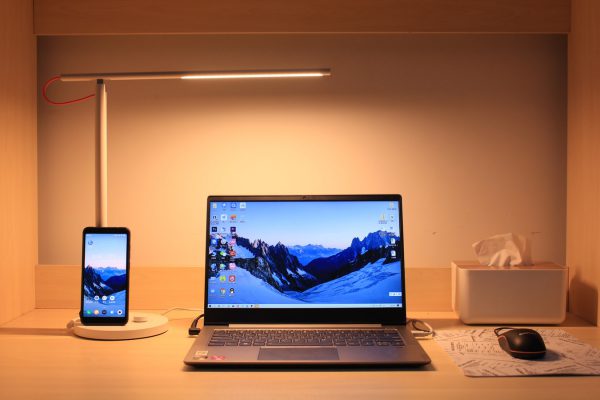The coronavirus COVID-19 is in full swing, recently upgraded to be considered a pandemic. As such, many regular students and employees are finding out for the first time what it’s like to study or work from home (WFH).
It seems like a fun new world, at first, where you can forego pants, wake up just before your first meeting or class, and do household chores during your workday or lessons.
However—
It’s actually not as easy as it sounds, especially knowing how to stay productive while remote.
As a location-independent employee myself working for Goodwall, a distributed company, I’ve learned a few things which may be useful for those of you struggling to transition into your new remote reality.

Want to showcase yourself in the best way possible to future employers or universities? Sign up to Goodwall!
- Develop skills & experience
- Highlight accomplishments
- Network globally
- Find top jobs & internships
Download the app now to get started!
Here are our best tips for how to be productive while studying or working from home:
1. Keep Up Your Regular Routine
One of the most important working from home tips to remember is that you should always keep up your regular routine and workday hours. You may deviate some when it comes to your schedule of course—after all, remote working and studying is all about flexibility.
However, your company and superiors expect the same amount and quality of work out of you as they would if you were in the office. Same goes for your college professors regarding your essays and lessons. On top of that, your meetings and managerial check-ins will likely happen as usual, though virtually.
Finally, a routine helps you to be more productive by keeping you in that work mindset. Even if you have freedom in when you choose to do your office tasks, set a schedule for yourself and keep it up 5 days per week. And, if you know you’ll be returning to the office or classroom in the near future, have your WFH or SFH schedule match your “real” schedule as closely as possible.
2. Maintain Your Morning Routine

Just as important as maintaining your 9-to-5 routine for remote work productivity is to also keep up your regular morning routine. By now, you’ve lived for some time, and you know, even if it’s just subconsciously, what it takes for you to feel awake in the morning.
Have your morning coffee at the regular time, and cook yourself a hearty breakfast. Don’t skip the shower if that helps you wake up, even though no one will have to pinch their noses when they meet you on Zoom. Even wearing your normal shirt and pants is a great idea over keeping a nightie, sweatpants, or pajamas on, as, psychologically, they get you in that zone.
Related Read: 15 Books to Read Before College for High School Students and Graduates
3. Communicate Like a Boss
For it to function, working from home requires stellar communication. And, if you’re used to good communication while at a physical office, you may want to turn it up a notch into an “overcommunication” setting.
Working at the office gives you many chances to communicate, from eye rolls behind the manager’s back with your buddy to daily standup meetings. At home, on the other hand, it’s all email and a Slack equivalent, for the most part.
Since you’re relegated to written text mostly, make the most of it. Don’t use modern shortcuts (e.g., “ok tks,” “nm”) whenever possible, as it takes something away from your message. Be descriptive when writing on Slack to ensure that everyone is on the same page; it’s harder to follow up when working from home vs working at the office. Also, when on a group meeting, whether it’s a chat, video conference, or phone call, make your voice heard to keep up an appearance of teamwork and initiative.
Because I brought up Slack and abbreviations in this working from home tip, here’s a related fun fact: Slack is actually an acronym which stands for Searchable Log of All Conversation and Knowledge!
4. Find a Dedicated Location to Study or Work
Another of our top studying or working from home tips is to find yourself a spot where you’ll get your tasks done while at home. It could be a desk in your own home office, if you have that luxury, or just your spot at the kitchen table.
A dedicated work or study space gives a semblance of normality, and your brain doesn’t have to adjust to its surroundings over and over again. Also, when you first get to work remotely, don’t make your bed your chosen WFH spot; it’s way too associated with sleep, laziness, comfort, etc., for it to be a productive work environment.
If working from home isn’t working for you, don’t work from home, per se. Find a coffee house or diner you enjoy and head there each day to work or study. However, be sure to practice social distancing while coronavirus is still a thing!
Related Read: How to Stay Healthy When Studying or Working From Home 🏡
5. Work Alone & Without Distractions

When it’s time to work, whether it be on essays or accounting, remove yourself from distractions. This often means your pets and your family, if they prove to be distractions.
In my case, however, I tried to lock out my Devon Rex-breed cat from my home office, only to find that his whining and clinginess from outside my office were more distracting than just letting him in and allowing him to wander about.
Other obvious distractions are social media websites, Wikipedia tangents, and things of this nature. Relegate your personal internet use for your break times to remain as productive as possible. If there’s noise from construction or neighbors annoying you, get yourself some noise-cancelling headphones to block them out.
6. Work With a Friend
Sometimes, you may find it better to work or study with a mate when away from school or the office, and that’s fine. As long as you both can get some serious work or study time in, you may even benefit from the social interaction and banter you’re missing from the office.
Related Read: How to Use Goodwall’s Web Profile to Score a Scholarship & Get Into Uni
7. Invest in Technology
If you’re going to be working or studying from home for some time, or perhaps you do it regularly, like once or twice per week, it’s a good idea to invest in some workplace tech. Is your mouse finicky or your keyboard on the fritz? Replace them to be as productive (and happy) as possible.
For larger purchases, such as a top-of-the-line webcam or a new monitor, see if your company is willing to write it off as a business expense and reimburse you.
8. Take Advantage of the Benefits

Perhaps your office or university had free snacks or coffee in the kitchen. Working from home has its benefits, as well. As a writer, I sometimes like to get comfortable by getting horizontal in bed as I draft up my articles and think. This doesn’t cross into any ethical gray areas for me, so I take advantage of this when the mood strikes me.
I also don’t like running the washing machine when I leave the apartment, so working remotely allows me to perform that hour-long duty. All I need to do is spare two minutes beforehand and maybe 5 minutes after, but I can work as my clothes are getting clean.
9. Work Out
One of the best work-from-home tips is to get in a few short exercise breaks. While it may be unprofessional or unsightly in some offices (or in a college class) to get down on the floor and knock out some sit ups or pushups, it’s all positive at home.
Not only will you get your blood pumping after being seated, but a remote life is always more sedentary compared to working at the office (e.g., no physical meetings, no commute).
Also, if you take what would have been your morning and evening commute and use them as a time to get a moderately vigorous workout in, you’ll probably just have a “wakier” experience throughout.
Related Read: Internships 101: Everything You Should Know About Internship Programs
10. Socialize
Working or studying at home has its perks, but it also has its drawbacks. Chief among them is your inability to get in the socializing we humans crave.
Set up a virtual water cooler on Slack, if possible, where you and your work buddies can chat about workplace-irrelevant topics. Play online chess together. If you have friends nearby, consider grabbing a coffee or meeting them for drinks later.
11. Get Comfortable

Here’s one of our favorite working from home tips which will enrich your life outside of work or school, as well.
You’ve hopefully purchased all the items you need to get your job done efficiently and effectively, but your own comfort is crucial when considering how to be productive while working from home. If you don’t have it yet, get yourself a great office chair with good ergonomic support—long hours at a keyboard all but require it.
Comfort doesn’t just rely on how you feel while working, but it also includes how comfortable your environment is, how conducive it is to work. If you think you require it, get yourself a great desk, shelving, and even a nice wall hanging or motivational poster. Whatever makes you work more productively should be considered.
12. Take Sick Days When You’re Sick
If you’re sick, take a sick day. It sounds like one of the simplest working from home tips, but I know many people who feel that, since they’re already working from home, they can just manage somehow. The thing is, if your work output and quality are going to suffer, or you can’t perform as well as on a normal day, you owe it to yourself and to your employer to use up a sick day instead.
Related Read: 10 Tips on How to Concentrate and Improve Your Brain’s Ability to Focus
13. Ask Questions & Request Feedback
When you’re working virtually, it’s not as easy to just tap someone on the shoulder and ask a question or get feedback from your coworkers and supervisor. Be proactive. Write an email or Slack message once in a while to ask for feedback on how you’re doing, especially since you may have just started working remotely. When you have a question, ask. It’s better for everyone involved when you’re all on the same page.
14. Use a Virtual Background on Video
Is your bedroom an unsightly mess of laundry and unfolded sheets? If you’re about to join a video call, turn on the virtual background if the service you’re using has it available. This will take your image and replace your surroundings with another, like a beach scene or the jungle. It basically makes it as if you were in front of a green screen. Though it’s a fun trick, aim for something not so distracting to keep it profesh, such as a plain black background.
Canva has some great virtual backgrounds for Zoom, if you’re interested.
15. Get Great Sleep
One of the most important activities you can do to be a productive worker, making it one of our most important working from home tips, is to get great sleep. As a remote employee, you may haggle with your needs, telling yourself you don’t have to sleep as much since you don’t have to be in the office. But a proper night’s rest is crucial for your happiness, productivity, mood, wellbeing, attitude, and just about everything important. Don’t sacrifice your sleep just because you are location independent.
Related Read: How Does Recycling Help the Environment? (& 10+ Materials to Recycle)
16. Take Regular Breaks
Breaks are almost as important as sleep, and it also doesn’t matter whether you’re working in a midtown skyscraper or from your apartment’s couch. Also, there are several types of breaks to keep in mind.
Your eyes need breaks periodically from staring at a computer screen. Follow the 20-20-20 rule: after 20 minutes of screen time, focus on something at least 20 feet away (6 meters) for a minimum of 20 seconds.
Also, after every half-hour to hour, get up to stretch your arms and your legs, and perhaps to take a brief stroll around your flat to get the blood circulating again. One other break as a typer is to stretch your hands out so they don’t cramp up or turn into claw-hands when you’re older 😉
According to a recent study, the most productive employees take a 17-minute break after every 52 minutes of work! They used their just-over-a-quarter-hour to chat or go for brief walks.
17. Get Some Sunlight

Since you may have lost your commute, you will get less natural sunlight than if you were to go in to the office. This can affect your mood and your health, so it’s quite important. Though you could just get yourself an artificial sunlight lamp (they do help a bit), just step outside once per day and go for a quick 15-minute walk around your neighborhood. It’s cheaper than the lamp, and you can get some social interaction in at the same time!
18. Plan Out a Schedule
Compared to working at an office, it’s much more difficult to stay structured when it comes to your goals and tasks. Not only do you have more autonomy, meaning you have to be more responsible for your actions than ever before, but you won’t get the subtle clues and gentle nudges you would were you in a physical working environment. Plan out your day ahead of time to make up for this deficiency when working remotely.
Related Read: 15+ Easy Ways on How to Save Money in College (Tips & Advice for 2020)
19. Listen to Music & Podcasts
The silence can get disconcerting if you’re alone working in your apartment. Other than any meetings you may join, you won’t hear anyone’s voice for a good portion of the day. While it may be heaven for some, it may cause feelings of loneliness in the rest of us.
To counter this, turn on a podcast or some music to provide background noise. Make a work playlist or several of them, as you could have different music preferences for different tasks or parts of the day. Also, since you’re WFH, no headphones are required!
20. Don’t Binge Eat

When you’re at home working, you have the possibility of both a full kitchen and no one to hear or watch you eat. This can set you up for desk snacking, which should be avoided. When you snack mindlessly, you don’t enjoy your food as much, and, even more alarmingly, you’ll put on the pounds fast. Save your snacking for a break or lunchtime meal.
21. Don’t Do Every Chore You’ve Been Neglecting
Working from home is for working. Though you can take advantage of your office environment being your house by doing a load of laundry or something, don’t make it habitual. Not only are you not giving yourself a proper work-life balance (or boundary), but this is crossing deep into the ethical gray area and close to the purely unethical.
Related Read: 10+ Best Business Books to Read for Aspiring Entrepreneurs in 2020
22. Take Care of Distracting Tasks
Is the pile of dishes in your sink from the large dinner party last night getting on your nerves? Perhaps the room in which you’re working needs a thorough mopping or vacuuming? Do it.
Just as you would try to eliminate these distractions at the office, it’s important to knock out anything weighing on you, as these are energy and productivity vampires. Do those dishes and mop that floor, and then get yourself to work with an uncluttered mind (and uncluttered sink).
23. Keep Your Phone Near You

Because your phone is one of the main ways you’ll get Slack, email, and calendar notifications, it’s important to keep it with you at all times. Though you should give yourself a proper lunch and break times, your coworkers and manager may not know that you’re doing so. Also, workplace emergencies may arise, so it’s crucial to have your phone on you, even when you’re not at the computer.
24. Rebalance Your Home Time
Because your work and college studies may now be more at home, make your personal life less at home. After school or work is over, before it starts, and during the weekends, go out more than you would have while working at the office. Head to the mall or take a simple stroll around the block; it’ll help stave off any cabin fever.
Related Read: 25+ Books for College Students to Read in University
25. Commute Anyway
You may have lost your morning commute, but you can replace it.
One of my favorite working from home tips is to walk to the store for groceries in the morning before getting started. While I could (and do) buy weekly groceries, it’s a nice habit for me to walk to my nearby Lidl and purchase that day’s dinner or lunch ingredients.
This activity acts as a clear boundary between my personal life and my work life, just as a commute would. Also, it offers me one of the best benefits of the morning commute, which is that it forces your brain to really wake up as you get some fresh air, interact with the cashier, and navigate through aisles.
Just be sure to maintain an adequate amount of space between you and other shoppers during this time of coronavirus!
26. Have a Sign-Off Routine in Place
At the beginning of this article, I advocated for creating a morning routine to get in the swing of things as a remote employee. The same benefits can be said about a day-ending routine, as well.
A workday-ending routine can be anything at all, from closing your home office door to changing back into pajamas for the evening. This helps you create a solid boundary between your home life and your office life, which is especially important when both take place in the same location.
Well, that’s it for our studying and working from home tips, and we hope you found them useful and helpful! Got any questions, feedback, or other tips for remote work we should add to our list? Let us know below in the comments section, and thanks for reading!
Related Read: Scholarships 101 – Everything to Know About a College Scholarship
* This article was originally published on Dauntless Jaunter. It was adapted to be more compatible with the needs of Goodwall members, entrepreneurs, students, and young professionals before publishing here.







Indeed, remote work is highly challenging than people assumed. Facing technical issues, communication misunderstanding, flexible time schedules and many other unstable factors, remote workers have to know how to deal with all these situations. Especially when there is something wrong with your computer and you are remote working, that is a mess.
Use right technology and tools to remote work is important. I want to recommend apps which work well for myself: AweSun(for remote desktop), Toggle(for time schedule), Feedly(for news aggregation ), Zoom(for virtual meeting).
Hope will help!
Thank you, Ivan, those are some very good apps, indeed!